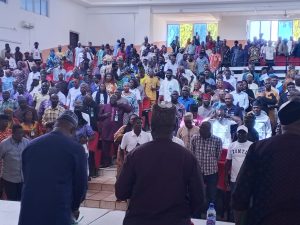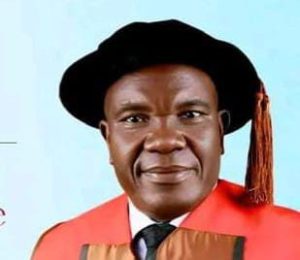Group Kicks as Police Seek Exit From Contributory Pension Scheme

Says Demand Will Undermine PenCom Gains
Following the demand by the Nigeria Police Force to dump the Contributory Pension Scheme, CPS for an independent pension management body, a media advocacy group for good governance in Africa, The African Media Roundtable Initiative, AMRI has said such move is unnecessary and would reverse the gains made by National Pension Commission, PenCom over the years in prudently managing the pension scheme of workers of various categories.
AMRI said if allowed to succeed, the move will open the litany of demands by other government institutions to leave the CPS.
Recall that at a public hearing recently in the House of Representatives on a Bill to exclude the Nigerian Police Force from CPS as well as allow a retiree to be paid at least 75 per cent of his/her retirement benefits, the Director General of National Pension Commission, PenCom Hajiya Aisha Dahiru-Umar had stated that there is no reason for such request, emphasising that concerns raised by the police could be resolved administratively.
Supporting the position of the PenCom Director General, AMRI in a statement on Wednesday signed by its Executive Director, Engr. Charles Awolowo noted that such demand wouldn’t have arisen at this moment especially when the focused and visionary leadership of the commission under Aisha Dahiru-Umar has continued to enthrone transparency and openness in an effort to ensure that retirees are well catered for through a robust pension plan.
While maintaining that Mrs. Dahiru-Umar has demonstrated that she is a listening leader who is willing to give her all to ensure that senior citizens of the country enjoy a decent living after service, Engr. Awolowo said the crux of the reason for leaving the CPS as adduced by the NPF is hinged on the small quantum of benefit payable to officers of the Force upon retirement.
He added that such concern could be resolved administratively in a table of dialogue rather than to totally exiting the scheme which he said has been made sustainable by the federal government for its workers, leading to huge sums of money saved and invested in the country.
“The demand by the Nigeria Police Force does not only have the tendency to make mockery of the legions of gains made by the CPS but will arm other agencies of the government with undue boldness to seek withdrawal from the scheme.
“Again, we are not oblivious of the fact that there is no perfect system anywhere but the scheme has proven to be the best for both public and private sector workers in the country since introduction.
“The question of amount of money payable to retirees is not the making of PenCom but rather a question of the earnings of the officers. An increased wage will automatically bring about enhancement in pension of retirees.
“PenCom is a creation of the law and does not operate outside the extant laws of the country. The demand for payment of 75 per cent of retirement earnings of workers cannot be feasible at this moment because Section 173 of the 1999 Constitution as amended is clear when it says everyone who has worked and is retired is entitled to periodic payment. Only an amendment of the Constitution by the National Assembly can make this work.
“As a responsible organization, we are deeply concerned about the welfare of our senior citizens who have given their all in the service of their fatherland. However, we must be guided by laid down rules.
“Pulling out of the Contributory Pension Scheme, CPS is not an inch close to a better post-service life of the police officers than it is at the moment. It would rather take us back to forgotten years and reverse the modest achievements PenCom has recorded, as amplified under the current leadership.
“The National Assembly must do the needful by rejecting the Bill for an independent pension body for the police. The solution to their concerns is not in creation of a new body to oversee their pension but to raise their earnings as well as legislative framework that can make the withdrawal of 75 per cent of earnings possible upon retirement. We must not resort to treating the symptoms while the ailment takes a toll on our body system,” Engr. Awolowo stated.





